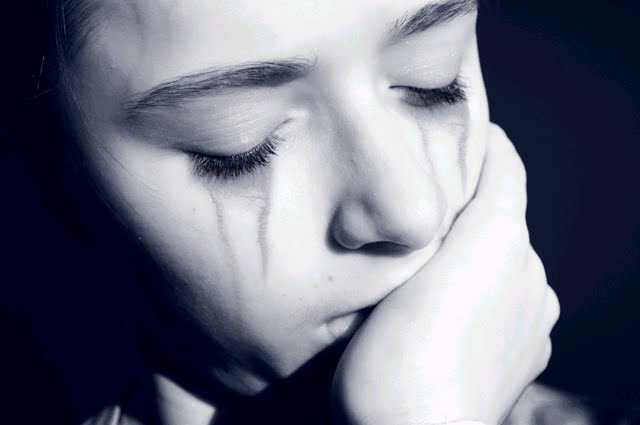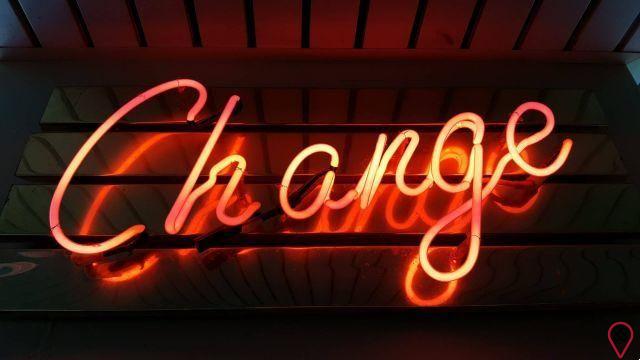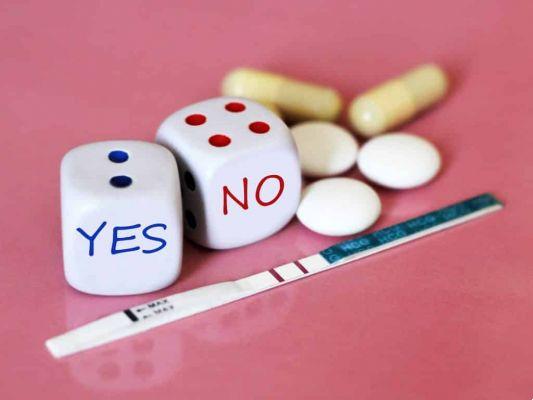According to data from the World Health Organization (WHO), from February 2020, depression is estimated to affect more than 350 million people worldwide. Known as the disease of the century, this disease is disabling and can considerably impair the quality of life of those it affects, even taking away their will to live. But all this can be avoided, because depression has a cure!
Before proceeding with this article, it is important to emphasize that depression is an individual disease, that is, it manifests itself in different ways in each person, because it affects emotions and the physical body, especially our neurological part. So do not treat this text as a diagnosis. Seek help from a psychologist or psychiatrist to assess your behavior and understand if you suffer from depression.
That said, it is important to emphasize that, according to the WHO, since 2020 depression is the most disabling disease on the planet, that is, the one that most prevents a life with quality and well-being. Also according to data from the agency, cases of depression have grown by about 20% since 2010, numbers boosted by the Covid-19 pandemic, which has imposed social isolation, new anxieties, fears, uncertainties, anguish and, for some, grief. , aggravating the general panorama of the disease, which was already worrying.
What is depression?
Known simply as depression, major depressive disorder (MDD) is a mental disorder primarily characterized by at least two weeks of frequent feelings of sadness and apathy, accompanied by other symptoms, which we will list later.
Depression is a disease that manifests itself differently for everyone. While one person may experience loss of appetite and mood swings, another may see their appetite increase and experience extreme fatigue. Therefore, it is important to consult a professional to understand the situation.
The causes of depression are diverse. It can be triggered by trauma or discontent, for example, as well as by grief, isolation, loneliness, disappointments, demotivations and other feelings and situations, but it can also have genetic and biological causes. And that's why it's so variable.
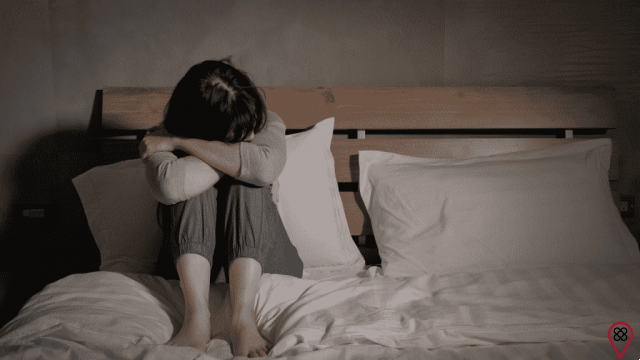
If you have noticed that your behavior is strange or a person has not acted in the same way as before, we have prepared a list to explain some behaviors that a depressed person has and usually does not show – sometimes it may be because they don't even realize it; but, in most cases, it is to escape the stigma that this disease brings.
types of depression
Before presenting the different types of depression that a person can have, it is important to emphasize that this mental pathology occurs in levels (or degrees). This means that each type of depression can present itself differently from person to person, because it could be that someone has the disorder at a lower level, presenting a milder case, or a higher level, accentuating the dangers of the disease.
unipolar depression
Also known as major depressive disorder, it is the best-known and most common case of the disease. This type is divided into three grades (mild, moderate and severe) and each has an approach. Despite this, mild cases should not be neglected, deserving attention and care in the same way as other degrees of the disorder.
The symptoms of this type of depression are, in fact, the most generic of the disease, such as sadness, anguish, discouragement, guilt, changes in sleep, appetite, concentration and libido.
bipolar depression
Bipolar disorder itself is a different pathology from depression, but it is listed here as a depressive type because bipolarity manifests itself in individuals with this condition. This is because, in the depressive person, there is an alternation of depressed moments with euphoric or irritable periods.
seasonal depression
Seasonal depression is not well known in tropical countries like Spain, because its main cause is the lack of vitamin D in the body, whose synthesis is provided by the sun. Therefore, it is a disorder that is present in places with lower temperatures, such as in Northern Hemisphere countries. It is also known as “winter depression”, and individuals affected by this condition become quite depressed during times of extreme cold.
Baby blues
While motherhood is romanticized and always seen as a dream for all mothers, there are women who go through this period as a real nightmare. This is because, shortly after pregnancy, the production of certain hormones drops, which causes mothers to develop sudden depression, feeding negative feelings that prevent them from experiencing motherhood in a joyful way.
Among the symptoms of this specific type of disorder, there is the idea of inability to care for the baby and excessive guilt on the part of the mother in relation to this.
psychotic depression
If there is any doubt about which type of depression is more serious, we can definitely say that it is psychotic depression. Along with the typical and more general symptoms of the disorder, there are other more serious signs of depression, such as delusions, persecution mania, and even the feeling that something very bad is about to happen, as if it were constant anxiety.
This psychosis greatly affects the life of those who have the disorder, because the subject in psychotic depression is able to mix the reality in which he lives with fantasies and paranoia in his head, not knowing how to distinguish what is real.
Attitudes of those who have depression and do not show it
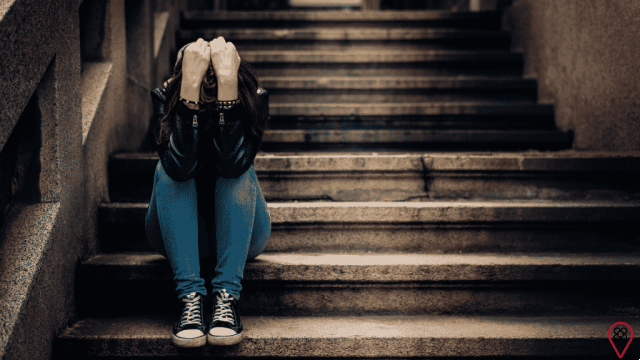
As explained earlier, depression is a disease that affects each person in a different way, so it is essential to consult a psychologist or psychiatrist to understand if your symptoms are depression or some other ailment. But we prepared a list with attitudes of people who are suffering from this disease, but don't know or hide it. Check out.
false happiness
Do you feel really bad, lonely, sad and depressed when you're alone, but try to mask these feelings and thoughts when you're around other people? This is a common symptom of depression, for two main reasons: the first is that we are always taught that happiness is the only possible emotional state, so being sad could be shameful; the second is that depression is quite stigmatized in society, so recognizing that you suffer from it can be very harmful socially, professionally and in other spheres.
Think about the other symptoms to understand if you're just going through a phase where loneliness and other bad feelings bother you, or if it could be depression.
Guilt feelings
All the time, depressed people harbor a strong sense of guilt within themselves. Guilt for not being happy, guilt for not being willing and, consequently, not being able to carry out all activities successfully, guilt for not making themselves gifts to friends and family, and so on.
Those who are depressed are, above all, to blame for having depression. This is why this illness is often accompanied by self-harming and self-sabotaging attitudes, because the depressed person feels that he deserves to be punished for all the guilt he carries within him.
Irritability
If activities, people, and situations that previously didn't irritate you (or that didn't irritate you to the point of stress) now irritate you, be aware of this. As deep sadness and discontent are part of the symptoms of depression, it is common for the person suffering from the disease to be almost always uncomfortable, to the point of "exploding".
So, if you feel emotionally stressed or physically affected by situations that previously did not cause aggression, tremors, excessive sweating, screaming, among other signs of irritation, be aware, as it can be a symptom of depression.
little sensitivity
They say that the world of a depressed person loses its colors, smells and flavors. It is a metaphor that demonstrates how that person's sensitivity is affected. But what does that mean exactly?
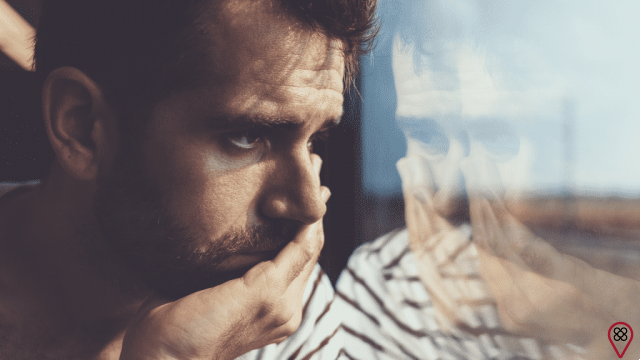
If you notice that you no longer feel so much pleasure and joy with what you have always been excited about, or if you have not even been so sad or moved, because you live in an almost permanent melancholy state, this can be a symptom. Pay attention to whether you have been feeling "anesthetized", as if both joy and sadness have less impact on your routine and your emotions.
less willingness
Do you realize that you have been less aware of the many activities you have always performed, or that even simple situations and activities generate excessive laziness, tiredness and fatigue? It could be a sign of depression.
Depressives often experience fatigue that never goes away, even if they get plenty of rest. Then the “energy” is reduced, things are being halved, much more time is spent on simple activities, among other demonstrations that there is permanent tiredness.
messy food
How is your weight? Have you gained or lost a lot of weight? Have you been eating properly, as you always have or have you suffered from a lack or increase in appetite?
Eating disorders are common among people who suffer from depression. But because the disease affects each person differently, some may end up eating more than they usually do, while others may cut back on their diet. There are even those who don't eat at all, which can be quite dangerous. You know your appetite, your body and your diet, so stay tuned.
Difficulty socializing
If your routine with friends, family, co-workers and your partner has been significantly affected because of your discouragement of being with them, stay tuned. If you are depressed, even pleasurable activities such as a day with your partner or a night out with friends can represent stress and come with that feeling of “Oh! It’s better if I don’t even leave the house today, I’ll make up an excuse.”
If you notice a change in the way (and willingness) to relate to people, it is important to be aware of this possible symptom.
mood swings
Yes, it is normal to feel sad and happy in the same day. We are human, and this is how our emotions manifest. But if you've been noticing sudden, intense and even violent changes in your mood, it's good to be aware of this.
One of the symptoms of depression is a high frequency of mood swings. Then a deep sadness can give way to sudden happiness, which is soon replaced by an almost complete despondency. Note the intensity and frequency of these oscillations.
demonstrations of guilt
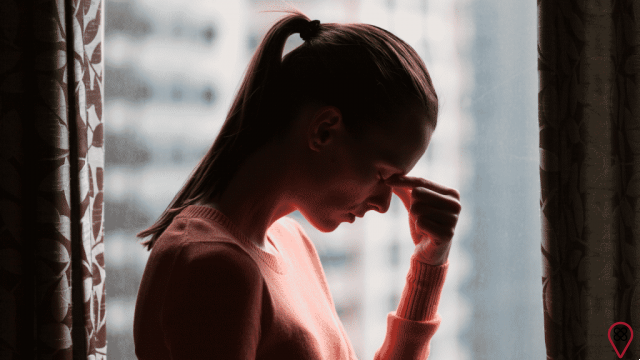
They say that depression is a disease in which there is too much of the past, which is a very representative metaphor. If you have been in a state of sadness, in which you tend to dwell on past mistakes or blame yourself for situations in which, when you stop and consider rationality, you know it was not your fault, this could be a symptom of depression.
As this disease can greatly affect your self-esteem, it is normal for you to blame yourself excessively and see in yourself mistakes that you didn't make or that don't even exist.
Body pain
In the rush of everyday life, who doesn't feel pain in the back, joints or muscles, for example? When we feel pain, however, it is common for us to know its origin. "Back pain? I carried weight over the weekend.” "Knee pain? Maybe because of football or that race.” “In the muscles? Oh! It was that bump on the bed.”
Finally, “ordinary” pain has its origin. But if you have been experiencing pain in various parts of the body for which you cannot find an explanation, know that this could be a sign of depression. Many think that depression only affects emotions, but it has a lot of influence on our body.
Social isolation
Even though we sometimes want to be alone to enjoy some time in our own presence or do certain activities, no one likes to feel lonely, do they? So, if you've noticed that you're exchanging time with the people you love for loneliness (and, worse, that you don't find pleasure in moments alone), it's good to be aware.
This situation of social isolation got even worse in the pandemic, in which, even if we wanted to, we couldn't be close to the people we loved. So think about how the isolation caused by the quarantine has affected your routine and your desire to be close to others. If you realize that social isolation has had serious consequences for you, seek help.
Depression is curable!
But the most important thing you need to know is that depression is curable! With the help of therapy with a psychologist, help from a psychiatrist and medication, if necessary, you will certainly be able to overcome depression, regardless of its severity. The important thing is that you seek professional help the moment you realize that some of the symptoms described above are part of your routine.
You may also like
- Depression and life after it
- Symptoms of Depression: Don't Ignore the Signs!
- Find out what are the main causes of depression
- Understand What You Don't Know About Depression
- Learn what depression is, according to Buddhism
As we are always exposed to trauma, pain, disappointment, among other unpleasant situations, it is common to be vulnerable to a disease like this. Therefore, it is important to prevent yourself, and this prevention includes frequent therapy (there is free psychological care in almost every city in Spain) and surrounding yourself with people who form a support network to help you get out of this. But, reinforcing, the essential thing is to keep in mind that, just like a wound that heals and closes, this disease will pass, and your life will improve. Believe and be aware of the symptoms!
How to help a person with depression?
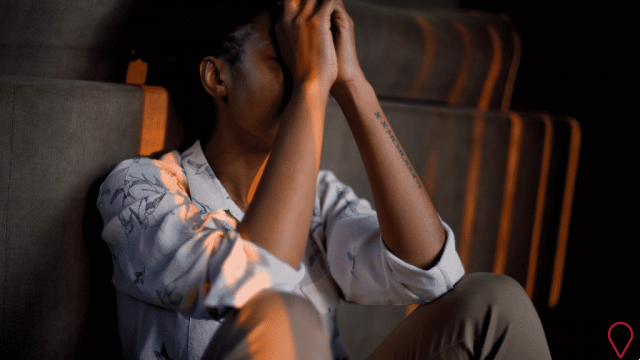
If you know someone who suffers from depressive disorder, chances are you care about them and want to help. With this, questions may arise: what to say to a person with depression? What not to say to a person with depression? Therefore, we will list below some ways to help you with this.
In any case, it is important to always keep in mind that the best help you can give someone with depression is to encourage professional follow-up. Only mental health professionals are able to provide the best treatment for these cases, with the help of medication for depression, and wanting to replace this essential assistance can be a very irresponsible act.
How to help someone with depression by message
If you want to know how to help a person with depression via WhatsApp, for example, you should send messages that show that you are making yourself present and available for the person with depression to talk and ask for help with whatever they need.
You should always give your depressed friend a lot of confidence, making him feel safe in you to vent or talk. At no time, however, should you pressure him to talk about his illness or his personal anguish. After all, you should always respect that person's space, even if they seem to have a lot to say but don't want to say anything.
How to help a person with depression from a distance
Exchanging messages of affection, and showing support and availability for conversations and outbursts are attitudes you can have to help someone with depression via message, for example. In addition, you can propose online activities with the depressed person to distract them and provide them with moments of fun, and this can include playing virtual games, watching movies or series at the same time while talking on the phone, make video calls together and the like. Use your creativity!
Another legal alternative to taking care of a depressed friend from a distance is to send him, by post, nice gifts, such as chocolates, for example, or even notes showing affection and support.
How to help a person with depression and an alcoholic
First of all, you must not in any way encourage this person to drink, and that includes not drinking alcoholics in front of them. In addition, always try to talk when the person is sober, highlighting their qualities without the drink, and pointing out the advantages of the period of sobriety to the detriment of moments of drunkenness.
As with anyone who has depression, it's important that in conversations you always try to listen more than you talk. Be a good listener, but still, don't pressure the depressed person to say what they don't feel comfortable expressing yet.
How to help a person with postpartum depression
It is essential that in helping a mother facing postpartum depression that you are understanding at all times. Those who suffer from this depressive modality cultivate a lot of guilt within themselves and deserve support, comfort and understanding, never judgments.
As, at this moment, the mother needs to focus her efforts on taking care of herself and dealing with her disorder, it is extremely important that you help her by taking care of the baby too, letting her enjoy hours of sleep and rest, while the son is in good hands.
How to help a person with depression who doesn't want help
To deal with a depressive who refuses to be helped, it takes a lot of patience, love and empathy. Above all, this person needs to understand that they are not alone and that they need to take care of themselves. Don't force conversations and don't have a pity attitude towards her, but be present and try to act in ways that will welcome her and encourage her to get out of this, even if gradually.
To help her, then, you can resort to discreet attitudes, such as: encouraging her to eat, cooking her favorite dishes; encourage her to act and carry out activities, proposing programs that she likes; always exalt their qualities and virtues, raising that person's self-esteem.
Want to make an online consultation?
Are you looking for professional help? Find psychologists online at Terapize!





